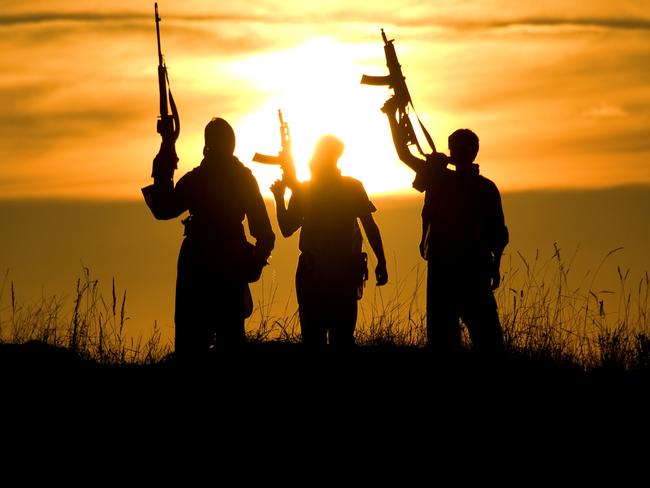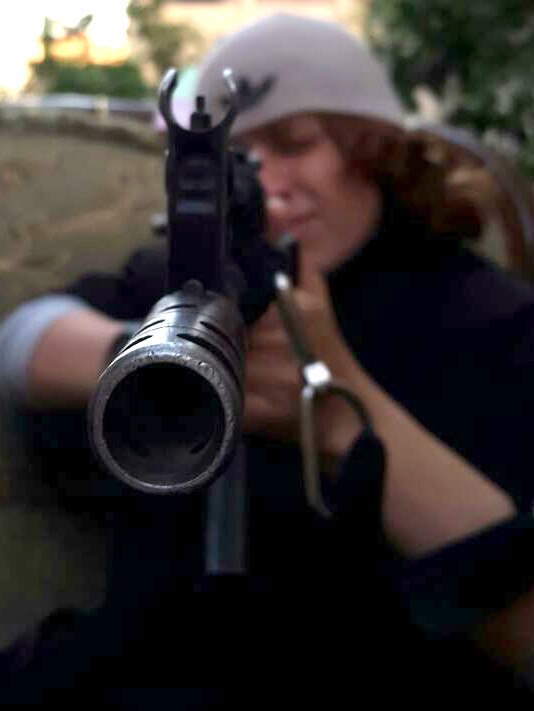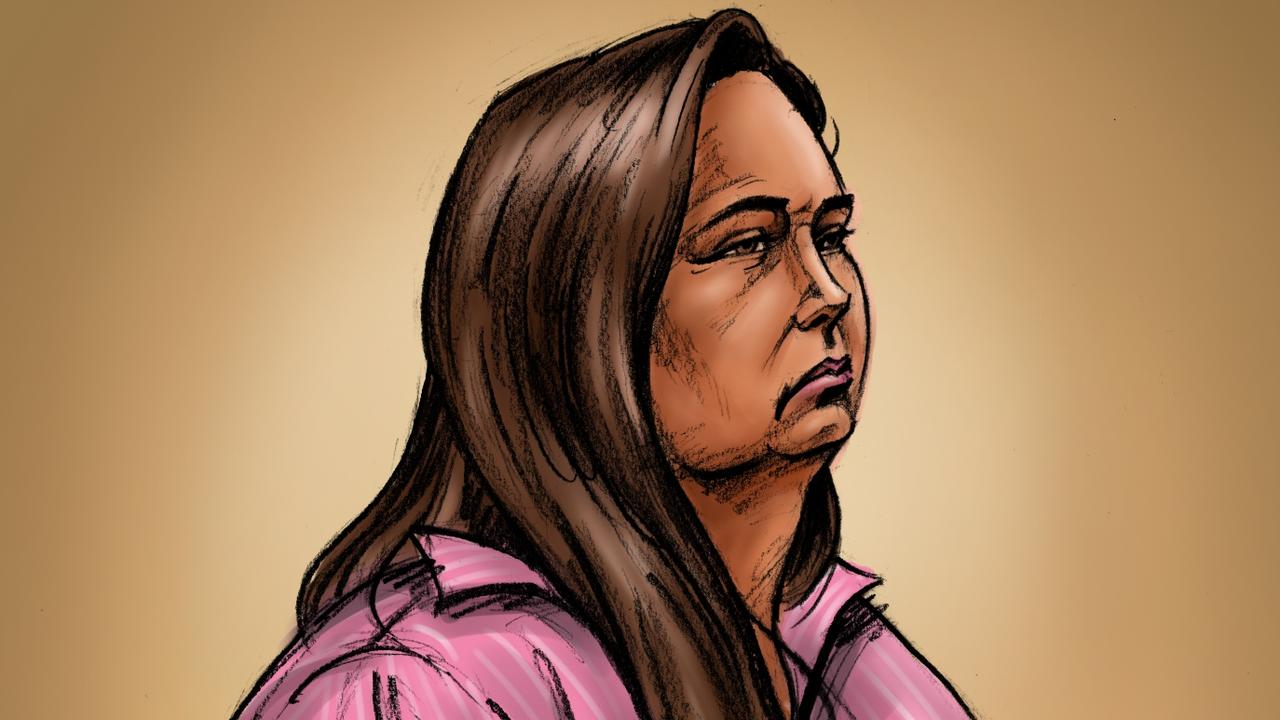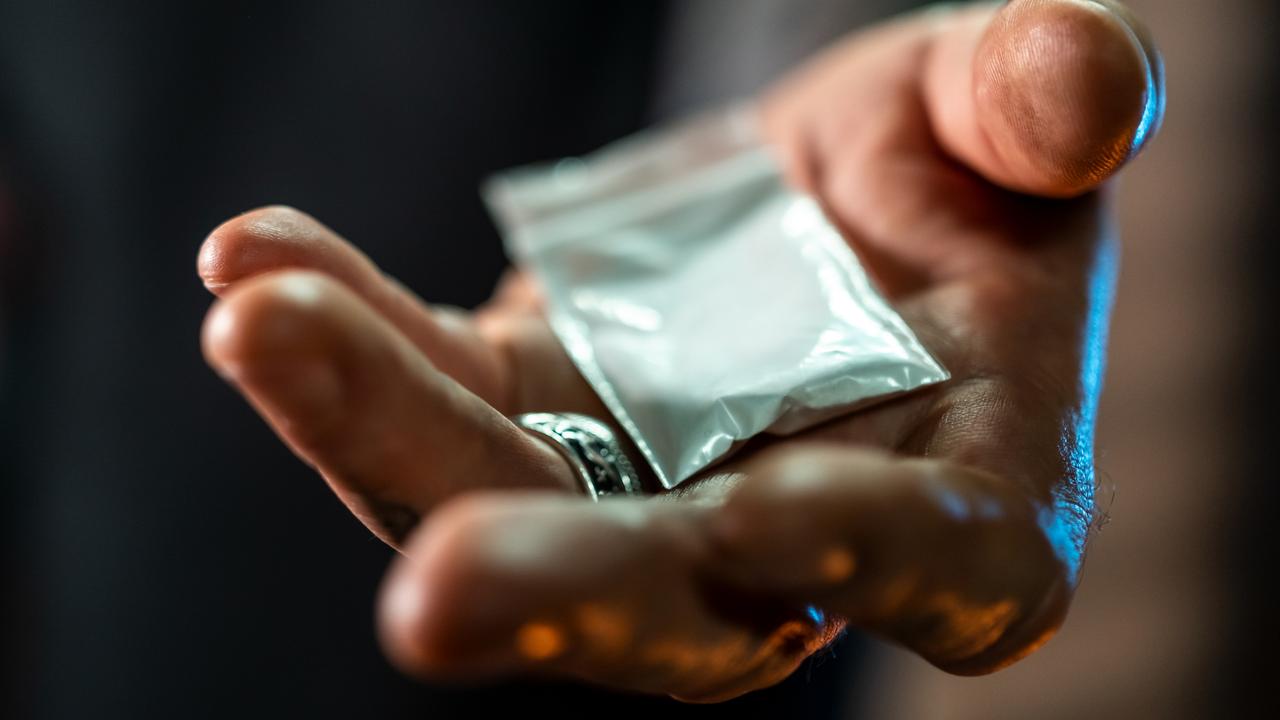Hadashah Sa’adat Khan facing jail for terrorism offences
A Hallam teen used encrypted apps to chat to IS fighters overseas, with chilling messages revealing the extent of her relationships with convicted terrorists.

Police & Courts
Don't miss out on the headlines from Police & Courts. Followed categories will be added to My News.
A pint-sized Melbourne teen has admitted her allegiance to Islamic State and her efforts to help an American terrorist achieve martyrdom.
The Sunday Herald Sun can reveal Hadashah Sa’adat Khan is facing up to 25 years jail after she pleaded guilty in Victoria’s County Court to providing support and resources to a terrorist organisation.
The court heard Khan was just 18 when she began using encrypted messaging apps, Kik and Telegram, to communicate with evil terrorists from the bedroom of her Hallam home.
Her parents and siblings were under the same roof and had no idea of her radicalisation.
But her phone and laptop proved otherwise.
They revealed her adherence to extreme ideology and included videos and images in support of Islamic State.
Following the 24-year-old’s plea of guilty the Sunday Herald Sun can reveal the extent of Khan’s close links to convicted terrorists for the first time.
Chilling letters between her and fellow inmate, convicted terrorist Momena Shoma, were found in her cell at the women-only prison Dame Phyllis Frost Centre.
Shoma, 28, was jailed in 2019, after she stabbed homestay host Roger Singaravelu in the neck in his Mill Park home the previous year.
And in October 2020 she used garden shears to try and kill another woman – a Canadian, inmate – in the hope the attack would generate international media coverage. She is serving a 48-year jail term.
Khan and Shoma were observed by prison staff “deep in conversation” just before Shoma attacked the other prisoner, who survived.
Khan was never charged over the jailhouse act of terror.
The pair were caught penning letters to each other which showed “an increasingly warm relationship between the two”.
In one letter, seized on September 12, 2020, Shoma wrote to Khan: “May Allah … make a way out for us all and grant us an imminent victory. May he guide, protect and honour our mujahideen. I eagerly look forward to share the fruits of Jannah with you my beloved sister.”
The card she had written on had a picture of a cockatoo on it, to which Shoma remarked, “I wish this birdie was green on this card ’cause that’s how you’ll look with me under the … of Allah!”
A letter found in Shoma’s cell from Khan the following month, said: “I love you to infinity and beyond … I think about you all the time, especially when I first came out and the girls told me how long you are sentenced.
“I remember that night in bed I cried so much I couldn’t breathe. Sounds too melodramatic but that night I cried for you more than myself.
“I really hope you do come out soon wallah, it would be a delight.
“PS I hope you know that I love you.”
Shoma, in response, wrote back, praising Khan for her willingness to act when given advice, saying she was “what we exactly need in our ranks – young and passionate Muslims who are ready to surrender to the will of our maker and transform their lives so as to set an example for others to follow”.
Sinister communications were also uncovered between Khan and other Islamic State members.
Over six days in June 2016, Khan helped to facilitate one terrorist’s entrance to Syria where he wanted to travel to engage in military combat in support of IS.
She was the conduit between him and other IS members, telling him not to directly contact others.
They even joked about how she was his secretary.
In one message exchange about 7.40pm on June 15, Khan wrote: “Concentrate on going there and returning to Allah as a green bird. Nothing else should matter.”
Prosecutor Shaun Ginsbourg said the green bird reference related to achieving martyrdom by being killed while engaging in violent jihad.

He said Khan assisted in preparing documents to show the man’s sponsorship into Syria, and arranged for him to meet someone, only known as user333, in Turkey who would “safely deliver him to IS in Syria”.
By June 21, he had purchased a one-way plane ticket from New York to Morocco.
Later that day, he went to Indianapolis to buy a bus ticket, but as he boarded the New York-bound coach, officers arrested him.
The court heard Khan and the man had met online in 2015 through a mutual friend, a girl Khan went to school with in Pakistan.
They would use aliases — Khan going by Zeisha Khan — to avoid detection from prying counter-terrorism officers.
Khan was born in Afghanistan in 1998, but when she was about two years old, her father migrated to Australia.
In 2001, following the removal of the Taliban regimen, Khan’s mother escaped with the children to Pakistan, where they lived for several years before being granted humanitarian visas to join her husband in Melbourne.
Khan became an Australian citizen in October 2010.
“The prosecution does not allege the offender’s parents or siblings knew what she was doing or that they shared her extreme views,” Mr Ginsbourg told the court earlier this month.
It was the FBI who tipped off Australian authorities to Khan’s communications with the other terrorist.
In January 2018, following an Australian Federal Police investigation, she was arrested.
She told investigators she was not aware of the other man’s arrest 19 months earlier and answered “no comment” to what she knew about him.
She claimed she didn’t know about Islamic State or the caliphate apart from what she had heard on the news and understood jihad to mean “struggle, but in a peaceful sense”.

Khan was released without charge and returned to living at her Hallam family home.
On February 25, 2020, AFP officers arrested her again and raided her home.
When they seized an iPhone from her handbag in her bedroom, she told the police it was her mother’s phone and that she did not know the passcode.
But when investigators cracked into it, it was clearly hers and contained hundreds of photos of IS propaganda and flags, as well as beheadings, executions and IS fighters.
The most recent video — depicting a roadside execution — was saved to the device a day before her arrest.
Her phone also revealed Khan had formed a bond with Abdullah Elmir, a Sydney-born teenager who became known as “ginger jihadi” after he travelled to Syria and appeared in an IS propaganda video, before being killed in 2015.
In conversations with him, she had expressed her love for him, willingness to marry him and her desire to travel to Syria to join him.
Saved photographs of Elmir with the IS flag, carrying and pointing assault rifles, possessing forms of artillery, and standing alongside other suspected IS fighters were on her phone.
The Sunday Herald Sun can also reveal, in February 2020, prison authorities intercepted a letter to Khan from Melbourne nurse and convicted foreign fighter Adam Brookman, who was in Port Phillip Prison at the time, throwing his support behind her and urging her to get in touch with Shoma.
Last year, Brookman pleaded guilty to one charge of foreign incursion for his 10-week Middle East mission where he did reconnaissance and weapons training in 2014.
Khan will be sentenced later this year.




